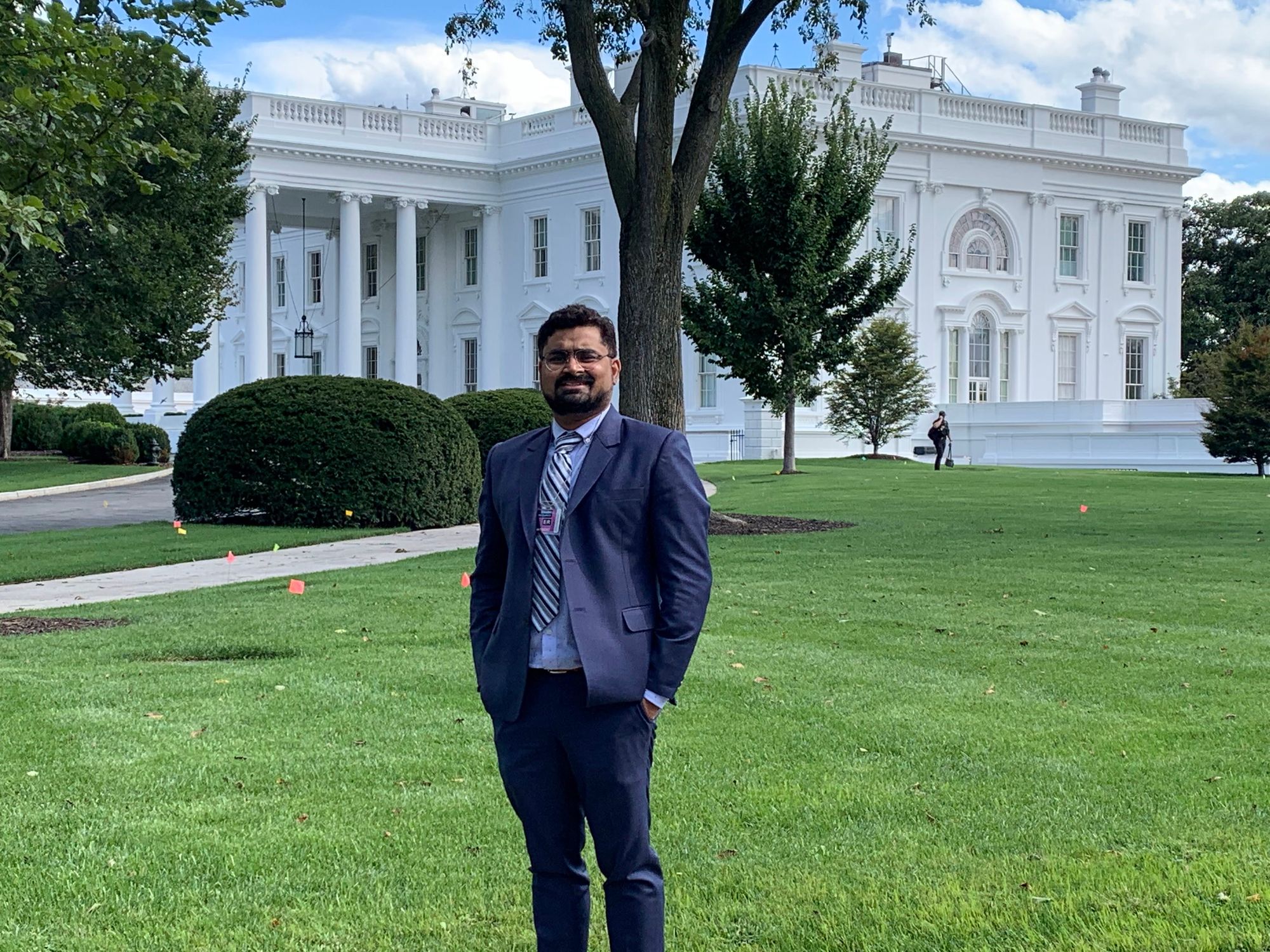Amidst strained ties, Trump nominates loyalist Sergio Gor as next U.S. Ambassador to India
For India, the appointment comes at a fraught moment in bilateral ties — with trade disputes, high tariffs, and a relationship defined largely by the personal rapport between the two leaders, even as the current mood in Washington casts shadows over the partnership.
.jpg) Director of White House Office of Presidential Personnel Sergio Gor poses on the red carpet during the 26th Mark Twain Prize for American Humor at the John F. Kennedy Center for the Performing Arts in Washington, D.C., U.S., March 23, 2025. / REUTERS/Craig Hudson/File Photo
Director of White House Office of Presidential Personnel Sergio Gor poses on the red carpet during the 26th Mark Twain Prize for American Humor at the John F. Kennedy Center for the Performing Arts in Washington, D.C., U.S., March 23, 2025. / REUTERS/Craig Hudson/File Photo
President Donald Trump has nominated Sergio Gor, a longtime Republican strategist and close associate of the Trump family, as the next U.S. ambassador to India. Born in the Soviet Union and raised in Malta before immigrating to the U.S., Gor’s rise from political aide to potential envoy underscores Trump’s reliance on loyalists to steer key diplomatic posts at a delicate moment in Indo-U.S. relations.
Gor’s personal story is as remarkable as it is unconventional. Born in 1986 in Tashkent, then part of the Soviet Union’s Uzbek Republic, he was originally named Sergio Gorokhovsky. His father, Yuri Gorokovsky, was an aviation engineer who designed aircraft for the Soviet military, including the IL-76 Supertanker, before later serving as a consultant with links to Israeli intelligence. His mother has been identified as Israeli by origin.
The Gorokovsky family emigrated from Uzbekistan in the 1990s, moving first to Malta and eventually settling in the United States when Sergio was 12. By 2006, he had earned U.S. citizenship, a moment he described in an interview with a Los Angeles newspaper as the fulfillment of his “great American dream.”
At Canoga Park High School in California, Gor immersed himself in student activities, serving as president of the Future Farmers of America chapter, an Air Force Junior ROTC cadet, and a member of the “Young Senators” program under State Senator Richard Alarcón. Soon after, he enrolled at George Washington University in Washington, D.C., where his political ambitions took root. Notably, he interned at the White House under President George W. Bush, underscoring how quickly he had integrated into American civic life after naturalization.
From those early days, Gor became a fixture in Republican circles. He built a career as a communications strategist, working on Capitol Hill and with high-profile figures such as Senator Rand Paul, whom he accompanied to Moscow in 2018 on a Cato Institute “fact-finding mission.” His extensive network within the conservative establishment gradually aligned him closer to Trump’s orbit, particularly after 2016.
Gor’s influence expanded during Trump’s administration. He became known as one of the “gatekeepers” of MAGA-world, entrusted with staffing decisions, fundraising, and media projects. As White House personnel director, he reportedly oversaw thousands of hires across the administration, favoring candidates loyal to Trump’s ideology. The Washington Post described him as “the most powerful man you’ve never heard of.”
At the same time, Gor cultivated close personal ties with the Trump family, especially Donald Trump Jr. Together, the two co-founded a conservative publishing venture, Winning Team Publishing, which produced several pro-Trump books, including the former president’s own photo memoir. Gor has also been a regular presence at Mar-a-Lago, Trump’s Florida residence, and was among the inner circle invited on trips with the Trump family.
His nomination to New Delhi underscores not only his proximity to Trump but also the administration’s intention to send a trusted loyalist to one of America’s most critical bilateral relationships. For Trump, India remains central to Washington’s Indo-Pacific strategy, serving both as a counterbalance to China and a growing market for defense, energy, and technology cooperation.
In the U.S., his nomination has already generated debate among both Republicans and Democrats. Supporters argue that Gor’s immigrant background, political savvy, and loyalty to Trump uniquely position him to manage the sensitive India portfolio. Skeptics question whether his closeness to the Trump family and lack of traditional diplomatic experience make him an ideal envoy to New Delhi, where nuanced statecraft is often required.
ALSO READ: India stocks set for modest gains as US tariffs, foreign outflows cloud outlook
For India, the appointment comes at a fraught moment in bilateral ties — with trade disputes, high tariffs, and a relationship defined largely by the personal rapport between the two leaders, even as the current mood in Washington casts shadows over the partnership. New Delhi will be watching closely to see whether Sergio Gor can help steady the relationship. His deep personal loyalty to President Trump may allow him to push past bureaucratic inertia in Washington, but the larger question is whether he can balance ideological rigidity with the pragmatism required to repair and revive Indo-U.S. relations.
If confirmed by the Senate, Gor will take charge at a time when India-U.S. relations face both opportunities and tests. His agenda will likely focus on balancing Washington’s push against China, navigating the complexities of India’s relationship with Russia, India’s role in resolving the Ukraine-Russia conflict, managing challenges arising from a renewed U.S.-Pakistan partnership, and advancing technology cooperation — including AI and semiconductors.
For now, Sergio Gor’s journey from Soviet-born immigrant to potential American envoy in New Delhi illustrates the paradoxes of modern American politics: a naturalized citizen at the helm of an administration marked by America First policy, and a political insider without prior diplomatic service tasked with shaping ties between two of the world’s largest democracies.
-10”-x-5.jpg)

 ROHIT SHARMA
ROHIT SHARMA
.jpg)
.jpg)
.jpg)
.jpg)









.jpg)

Comments
Start the conversation
Become a member of New India Abroad to start commenting.
Sign Up Now
Already have an account? Login